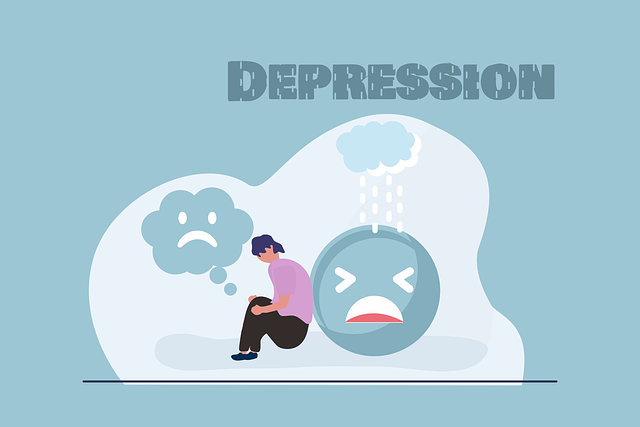Mental wellness self-assessment tools incorporating evidence-based methods like Westminster Cognitive Processing Therapy (WCPT) are crucial for early risk factor identification, proactive mental health management, and reducing stigma. These tools enhance cognitive flexibility, target negative thought patterns, and promote positive thinking, providing a holistic understanding of mental health. By integrating WCPT techniques with strategies like communication exercises and stress management, assessments become more effective and less anxiety-inducing, fostering personal growth and empowering individuals to take charge of their well-being. This comprehensive approach, supported by mental wellness coaching and public awareness campaigns, strengthens communities' overall mental health engagement and adherence to treatment plans.
Mental wellness self-assessment tools play a pivotal role in empowering individuals to take charge of their mental health. This article delves into the development and importance of such tools, focusing on integrating Westminster Cognitive Processing Therapy (WCPT) techniques for enhanced effectiveness. We explore strategies for creating reliable assessments and highlight the power of personalized feedback in fostering better mental health support. By understanding WCPT principles, we can revolutionize self-assessment, enabling folks to navigate their mental wellness journey with confidence.
- Understanding Mental Wellness Self-Assessment Tools
- Integrating Westminster Cognitive Processing Therapy into Self-Assessment
- Developing Effective and Reliable Assessment Tools
- Enhancing Mental Health Support with Personalized Feedback
Understanding Mental Wellness Self-Assessment Tools

Mental wellness self-assessment tools are crucial components in navigating an individual’s mental health journey. These tools provide a structured framework to evaluate one’s emotional, psychological, and behavioral states, enabling early detection of potential issues. By utilizing evidence-based methods like Westminster Cognitive Processing Therapy, these assessments can help individuals gain valuable insights into their mental wellness. This approach facilitates the identification of risk factors and promotes proactive management, which is essential for those looking to reduce the impact of mental illness stigma.
Furthermore, regular self-assessment tools not only aid in personal growth but also serve as valuable resources for mental health professionals. They assist therapists and counselors in tailoring their therapy sessions, such as Westminster Cognitive Processing Therapy techniques, to meet individual client needs. Additionally, these tools can boost confidence by empowering individuals to take charge of their mental wellness, fostering self-awareness and encouraging the adoption of healthy coping mechanisms. This proactive approach to mental health is complemented by effective risk management planning, ensuring a comprehensive support system for those navigating the complexities of mental illness.
Integrating Westminster Cognitive Processing Therapy into Self-Assessment

Integrating Westminster Cognitive Processing Therapy (WCPT) into self-assessment tools offers a novel approach to mental wellness evaluation. WCPT focuses on identifying and modifying negative thought patterns, enhancing cognitive flexibility, and cultivating positive thinking—all essential components in promoting mental well-being. By incorporating techniques from this therapy, self-assessment tools can become more comprehensive, addressing not just symptoms but also the underlying cognitive processes that contribute to mental health issues.
This integration facilitates a holistic understanding of an individual’s mental wellness by considering their thoughts, emotions, and behaviors. Conflict resolution techniques taught within WCPT can be incorporated to help individuals navigate challenging situations with greater resilience. Moreover, compassion cultivation practices encourage self-compassion and empathy, which are vital for maintaining positive thinking and emotional balance. Such a multifaceted approach ensures that self-assessment tools not only identify mental health concerns but also empower users with practical strategies to enhance their overall well-being.
Developing Effective and Reliable Assessment Tools

Developing effective and reliable mental wellness self-assessment tools is a multifaceted process that involves careful consideration of various therapeutic approaches. One promising method gaining traction is Westminster Cognitive Processing Therapy (WCPT), which focuses on identifying and modifying negative thought patterns. By integrating WCPT principles, assessment tools can become more nuanced and tailored to individual needs, fostering accurate self-reflection.
Additionally, incorporating strategies such as communication techniques and mental wellness journaling exercises within these tools can enhance their effectiveness. Encouraging users to express their thoughts and feelings through structured guidance promotes deeper introspection and self-awareness. Moreover, stress management components can be integrated to ensure the assessment process itself doesn’t become a source of anxiety or strain, thereby encouraging honest and insightful responses.
Enhancing Mental Health Support with Personalized Feedback

In today’s fast-paced world, prioritizing mental wellness is more crucial than ever. Personalized feedback plays a pivotal role in enhancing mental health support. By integrating tools like Westminster Cognitive Processing Therapy, we can tailor interventions to meet individual needs. This approach ensures that individuals receive targeted strategies for managing stress, anxiety, and other mental health challenges. Such personalized care fosters better engagement and adherence to treatment plans.
The development of Mental Wellness Coaching Programs and Public Awareness Campaigns further strengthens this process. By combining therapeutic techniques like mindfulness meditation with coaching programs, we can empower individuals to take charge of their mental health. These initiatives, coupled with increased public awareness, create a supportive environment where people feel comfortable seeking help. This holistic approach ultimately contributes to improved overall well-being in communities.
Mental wellness self-assessment tools play a pivotal role in empowering individuals to take charge of their mental health. By integrating evidence-based therapies like Westminster Cognitive Processing Therapy, these tools can provide valuable insights and personalized feedback. Effective assessment tools not only enhance self-awareness but also guide targeted interventions, ensuring tailored support for diverse mental health needs. As these resources continue to evolve, they offer promising avenues for improving access to mental health care and fostering better overall well-being.











